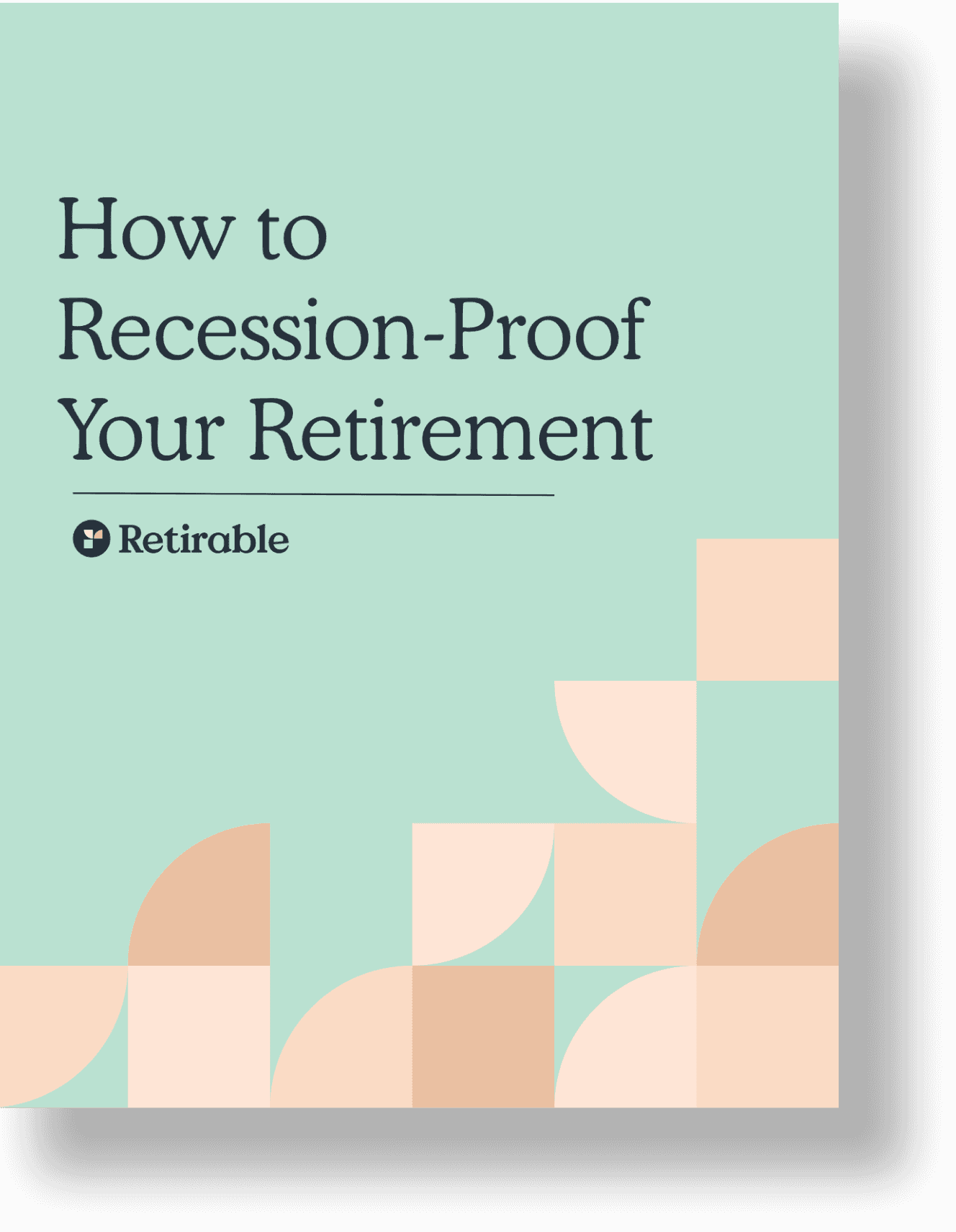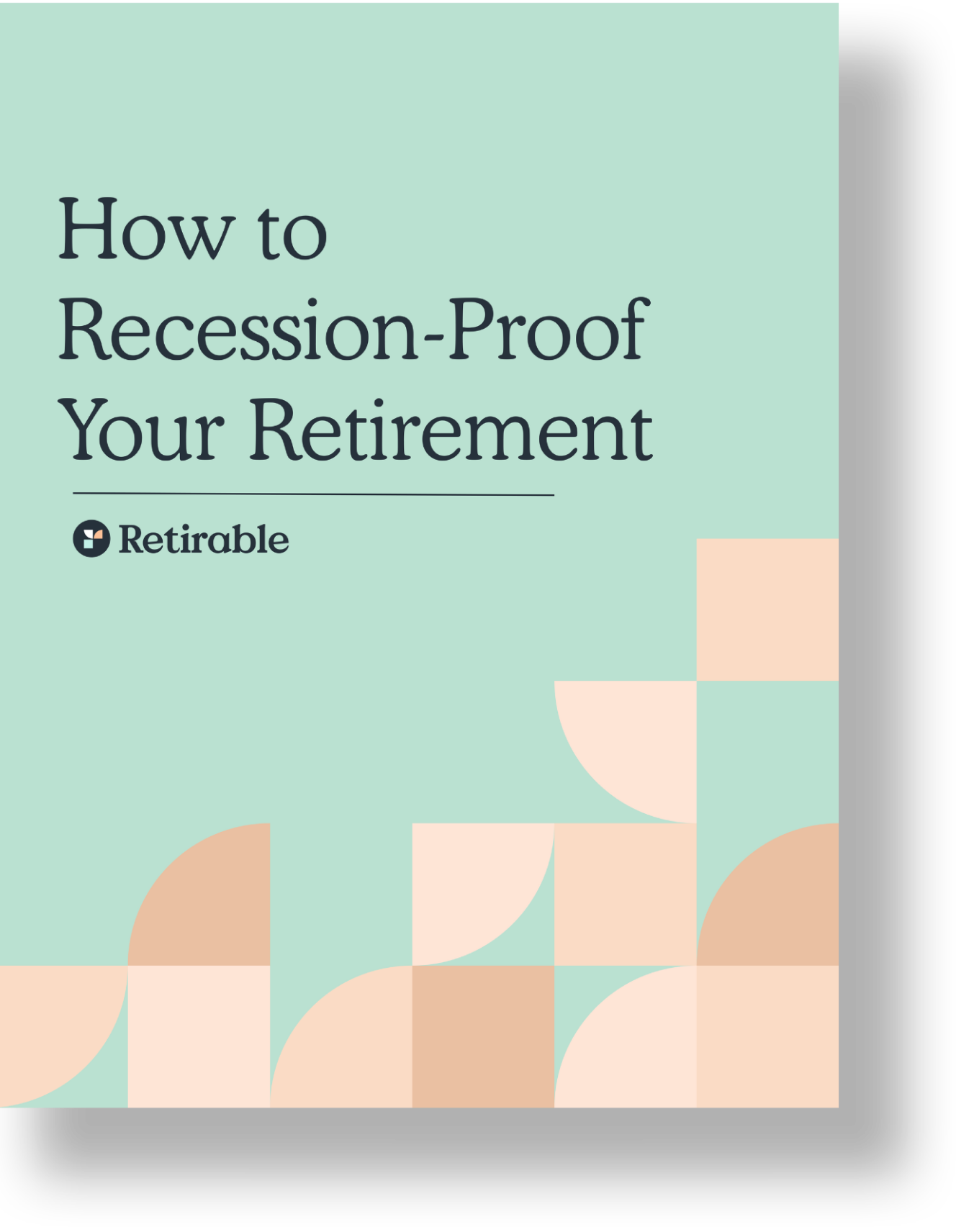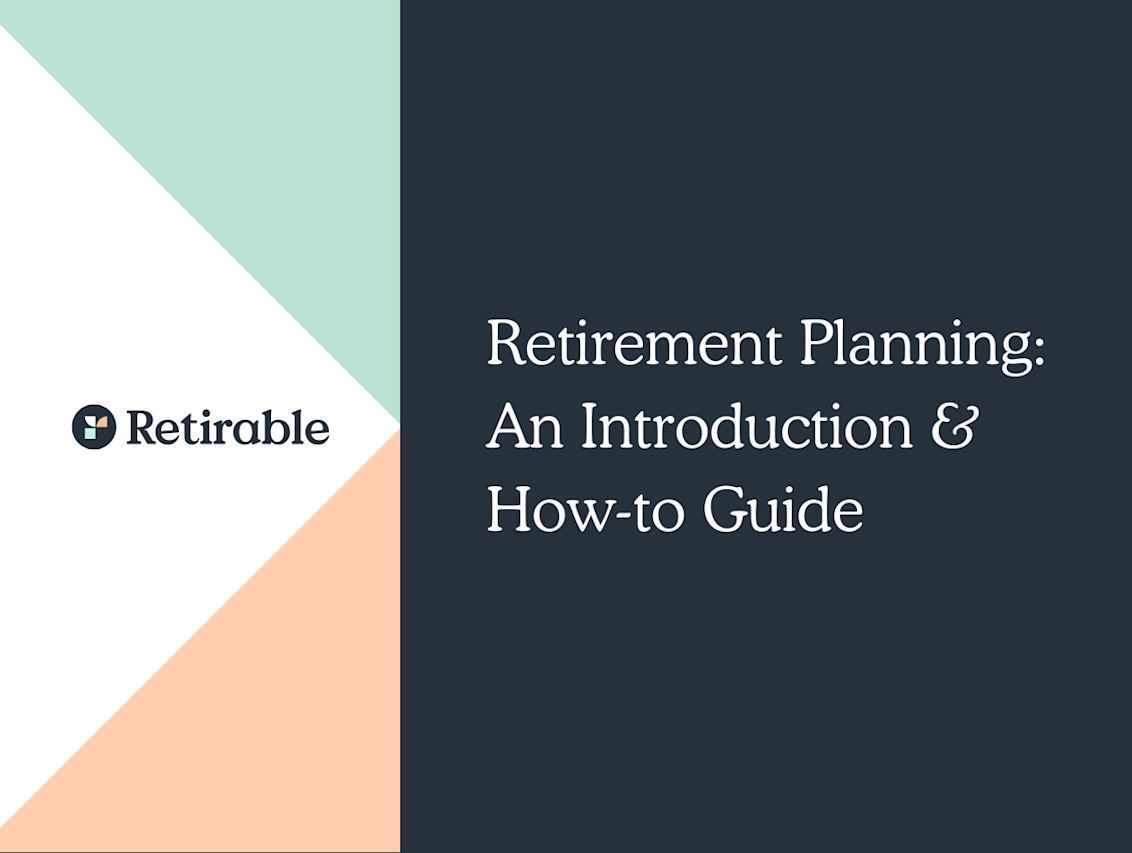Retirement Accounts
In retirement, every dollar matters. You’ll likely be on a fixed income, having planned for this time for the first two-thirds of your life, and want to enjoy it without paying hefty state taxes on top of anything you owe to the federal government. With our guide, you can learn which are the best states to retire to from a tax perspective, and which are the worst, with tax laws that might not allow you to keep your entire Social Security benefit.

C.E Larusso
•
Published July 12th, 2023
•
Updated December 29th, 2023
Table of Contents
Key Takeaways
If you want to move to a tax-friendly state, look for one that won’t tax your retirement income
Eleven states issue taxes on Social Security benefits: Colorado, Connecticut, Kansas, Minnesota, Missouri, Montana, Nebraska, New Mexico, Rhode Island, Utah, and Vermont
Make sure to weigh the tax considerations against other factors, such as weather, access to healthcare, and more
In retirement, every dollar matters. You’ll likely be on a fixed income, having planned for this time for the first two-thirds of your life, and want to enjoy it without paying hefty state taxes on top of anything you owe to the federal government. With our guide, you can learn which are the best states to retire to from a tax perspective, and which are the worst, with tax laws that might not allow you to keep your entire Social Security benefit.
The 10 most tax-friendly states for retirees
When looking for a tax-friendly state, start with the ones on this list. They offer the benefit of having no (or very low) income tax, as well as ones with no estate tax so you can rest assured that your beneficiaries won’t suffer from heavy tax burdens after you’ve passed.
That said, it’s important to weigh a state’s tax situation against other factors. If you don’t like snowy, cold winters, you might not be happy with some of the tax-friendly states on this list and be willing to sacrifice some of your retirement income if it means sunny weather.
Wyoming
State Income Tax Range: Wyoming has no state income tax.
Average State and Local Sales Tax Rate: 4% (some counties can charge an addition rate of up to 2%)
Median Property Tax Rate: Wyoming has one of the lowest property taxes in the United States, with the effective rate at 0.55%—10th-lowest in the country.
Estate Tax or Inheritance Tax: No estate tax.
Wyoming is a tax haven for retirees, and that’s because it has no income tax at all. Your 401(k), Social Security benefits, pension and other retirement income will not be taxed. The property taxes are low as well, with an effective rate of 0.55%. In addition, the stunning state has lots of natural beauty to recommend it, with two national parks (Grand Teton and Yellowstone) within its borders.
Alaska
State Income Tax Range: No income tax.
Average State and Local Sales Tax Rate: No statewide tax exists, but cities can impose their own rates, with an average of 1.76%. Anchorage has no sales tax.
Median Property Tax Rate: 1.17%, slightly higher than the country’s average.
Estate Tax or Inheritance Tax: Neither.
If you can handle the very cold weather and short days, Alaska offers many financial benefits, such as no income or estate tax. In addition, the state has a Permanent Fund Dividend, which pays people to live in the state permanently—residents are paid an average of $1,600 each year.
Alabama
State Income Tax Range: 2%-5%
Average State and Local Sales Tax Rate: The statewide sales tax is 4%, one of the lowest in the U.S., but the local taxes raise that average to 9.24%, which is the fifth-highest in the country.
Median Property Tax Rate: 0.39%
Estate Tax or Inheritance Tax: Neither.
Alabama has many cities that might be appealing retirement spots, such as the lake city of Guntersville. With relatively mild weather and a beneficial tax situation, it’s friendly to seniors. Even though Alabama does have an income tax, it won’t tax your pension or Social Security benefits. 401(k) and IRA distributions are fair game, and are taxed as regular income. That said, beginning in 2023, the first $6,000 of retirement income received by anyone age 65 or older is exempt.
Florida
State Income Tax Range: No income tax.
Average State and Local Sales Tax Rate: State sales tax is 6%, but local governments can collect a local option sales tax of up to 1.5%.
Median Property Tax Rate: .80%, which is below the national average.
Estate Tax or Inheritance Tax: Neither.
Florida is home to over 3 million people aged 65 or older—it’s one of the most popular places to retire, given its warm weather and very forgiving tax implications. Florida has no income or estate tax, and property taxes are below the U.S. average. If you plan to own a second home in Florida and reap the tax benefits, note that you’ll need to spend over half the year (183) in the Sunshine State. And yes, you’ll need proof.
Georgia
State Income Tax Range: Social Security benefits are not taxed, but pensions, annuities, IRA distributions, and other income is taxed between 1% and 5.75%; the state is switching to a flat tax rate of 5.75% in 2024.
Average State and Local Sales Tax Rate: 4% state levy, though local governments can add up to 5%, with the average combined rate at 7.37%.
Median Property Tax Rate: 0.81%
Estate Tax or Inheritance Tax: Neither.
Even though Georgia does tax non-Social Security retirement income, anyone 65 or older can claim a deduction of $65,000 on these other sources of income. If your income from your 401(k) and pension are less than $65,000, you will not owe taxes on it; this is a huge cost savings for retirees. In addition, the cost of living in Georgia is slightly less than the national average, and housing prices are lower than that of many other states on this list, including Florida.
Delaware
State Income Tax Range: 2.2-6.6%, but $12,500 of pension and other retirement income can be excluded.
Average State and Local Sales Tax Rate: No sales tax at state or local level.
Median Property Tax Rate: 0.56%
Estate Tax or Inheritance Tax: Neither.
Delaware does not impose any taxes on income generated from Social Security benefits. In 2018, Delaware repealed its estate tax, so as long as you’re under the federal threshold ($12.92 million), you won’t owe estate taxes. One thing to note, however, is that capital gains are subject to taxes as personal income (ranges from 2.2 to 6.6%), so if you have income from real estate sales or other investments, you should consult a trusted Financial Advisor to go over the tax implications of retiring in Delaware.
Mississippi
State Income Tax Range: 4-5%; retirement income for those over 59 ½ is not taxed.
Average State and Local Sales Tax Rate: The state has a 7% state sales tax, and a maximum local sales tax of 1%, with the average combined rate at 7.07%.
Median Property Tax Rate: .75%
Estate Tax or Inheritance Tax: Neither.
Mississippi has the lowest cost of living in the country and the second lowest housing costs, which in and of itself is a big financial bonus, but on top of that, retirement income is untaxed so long as you are over age 59 ½. It’s not a very dense state, so it might be a wonderful choice if you’re looking for peace and quiet but not so much if you prefer activity and people to meet and spend time with.
Nevada
State Income Tax Range: No income tax.
Average State and Local Sales Tax Rate: The state tax rate is 4.6%, and local rates range from 0% to 3.35%; the average in the state is 8.37%.
Median Property Tax Rate: .74%
Estate Tax or Inheritance Tax: Neither.
Another warm state on the list, Nevada boasts over 200 days of sunshine each year. If the dry, desert climate is appealing, you’ll also enjoy the fact that the state has no income tax whatsoever, and plenty of housing available, much of which is affordable. With Las Vegas, Reno, and several national parks within driving distance, there’s plenty to do, but it’s also worth noting that the cost of living is about 10% higher than the national average.
South Dakota
State Income Tax Range: No income tax.
Average State and Local Sales Tax Rate: The state sales tax is 4.5%, and the max for local sales tax is also 4.5%; the average comes out to 6.4%.
Median Property Tax Rate: 1.18%
Estate Tax or Inheritance Tax: Neither.
South Dakota has one of the lowest sales taxes of the states listed here, and no income tax at all. Alongside these tax benefits, retiring in the Mount Rushmore State affords lots of opportunity for outdoor activities and national parks to explore. It’s also known for its low cost-of-living, and low healthcare expenses.
Pennsylvania
State Income Tax Range: Flat rate of 3.07%.
Average State and Local Sales Tax Rate: Pennsylvania’s state tax is 6%, with a max local of 2%; the average combined is 6.34%.
Median Property Tax Rate: 1.49%
Estate Tax or Inheritance Tax: The state’s inheritance tax is between 4.5% to 15%, depending on a recipient's relationship to the deceased and their age.
Pennsylvania has a low, flat income tax rate of 3.07%, but the state doesn’t tax Social Security benefits, pensions, or 401(k)/IRA payments, provided you don’t retire early. Unfortunately, though, the median property tax rate is higher than the national average, sitting at 1.49%. That said, the state offers better tax benefits than other east coast states like New York and New Jersey, while still allowing close access to them.
The 10 Least Tax-friendly States for Retirees
These states will unfortunately go after most forms of retirement income—including your Social Security benefits—with some having high income and sales taxes, to boot.
Nebraska
State Income Tax Range: 2.46%-6.84%; any Social Security benefits taxable on the Federal level are subject to state taxes.
Average State and Local Sales Tax Rate: 6.94% average, with the state sitting at 5.5% and local rates capped at 2.5%.
Median Property Tax Rate: 1.51%
Estate Tax or Inheritance Tax: No estate tax.
Nebraska, unfortunately, taxes all forms of retirement income, though it restricts taxes on Social Security income to only the portion that is taxed federally. The state does have a special program for senior homeowners: the homestead exemption lowers the property tax for those 65 or older with a household income below $43,800.99 for single people or $52,000.99 for married people.
Minnesota
State Income Tax Range: 5.35%-9.85%
Average State and Local Sales Tax Rate: 5.35%-9.85%, some of the highest in the nation
Median Property Tax Rate: 1.02%
Estate Tax or Inheritance Tax: The estate tax applies to estates worth more than $3 million; the tax range is between 13% and 16%.
Retiring in Minnesota means not only coping with long, harsh winters, but with high tax rates. The state taxes all forms of retirement income including Social Security, though it offers a deduction for those over 65 on Social Security benefit income, so long as you are below the income threshold set by the state: $42,000 for married couples, and $33,700 for single filers.
Illinois
State Income Tax Range: Flat rate of 4.95%
Average State and Local Sales Tax Rate: 8.73%
Median Property Tax Rate: 2.07%
Estate Tax or Inheritance Tax: Estates worth less than $4 million are exempt from taxes, but anything over could see a tax rate up to 16%.
The state’s flat income tax rate (4.95%) is manageable, and Social Security benefits and income from some retirement plans are exempt from income taxes, but property taxes in Illinois are the second-highest in the country. On a $500,000 home, taxes will be $10,350—no small chunk of change. In addition, sales taxes are on the high end, with local taxes adding enough for some municipalities to charge up to 11% total. The Windy City—and its surrounding, quieter neighborhoods—might be lively and full of culture, but it may come at a cost.
Connecticut
State Income Tax Range: 3% to 6.99%
Average State and Local Sales Tax Rate: 6.35% flat rate; no local taxes.
Median Property Tax Rate: 1.96%
Estate Tax or Inheritance Tax: Estates valued at $9.1 million or more may pay an estate tax, which begins at 11.6% for the first $1 million above the exemption.
Connecticut made our list of worst places to retire to for several reasons, many of them tax-related. Pension and annuity income is exempt from taxes starting in 2025, but for now, only those who make less than $75,000 ($100,000 for couples) are exempt. In addition, the state has the third-highest property taxes in the country, only slightly lower than Illinois, which is also on this list.
New York
State Income Tax Range: 4% - 10.9%; New York City also issues an income tax of 3.078%-3.876%, in addition to state tax)
Average State and Local Sales Tax Rate: 8.52%
Median Property Tax Rate: 1.62%
Estate Tax or Inheritance Tax: New York’s estate tax increases as the value of the estate grows, from 5% to 16%.
In the Empire State, your Social Security benefits, government pensions, and military retirement pay are exempt from income tax, however anything over $20,000 from your private pension, IRA, or 401(k) is subject to taxes. If you live in New York City, you should note that you’ll pay an additional income tax, and the income tax rate for the state is very steep for high earners: 10.9%. The estate tax in New York also has a unique stipulation: for deaths in 2025, the tax is levied on the portion of the estate over the $6.58 million exemption, however if the estate is valued at more than 105% of the exemption amount, the exemption no longer applies, making the entire estate subject to New York estate taxes.
Kansas
State Income Tax Range: 3.10% - 5.70%
Average State and Local Sales Tax Rate: 8.49%, as cities and counties can add their own taxes onto the state tax, sometimes as high as 11.5%
Median Property Tax Rate: 1.33%
Estate Tax or Inheritance Tax: No estate tax.
We already noted the very high sales tax in Kansas, which applies to food and clothing, although the tax on food was reduced 4% in 2023, and will lower each year until 2025 when it hits 0% (local taxes will still apply, however). If your adjusted gross income is $75,000 or less, Kansas will allow you to exempt your Social Security benefits from taxes, but you will pay state income taxes on your 401(k), IRA, or other private retirement plans. It might have been home sweet home to Dorothy and Toto, but if you want your retirement dollars to stretch, you’re likely better in a different state.
Wisconsin
State Income Tax Range: 3.54%-7.65%
Average State and Local Sales Tax Rate: 5.43%
Median Property Tax Rate: 1.51%
Estate Tax or Inheritance Tax: No estate tax.
While consuming copious amounts of excellent Wisconsin-made cheese sounds appealing, the Badger State can do better by retirees. Your Social Security benefits will remain untouched, but your pension, annuities, IRA and 401(k) income are considered taxable. If your income is less than $15,000 ($30,000 for those filing jointly), you might get a meager tax break of $5,000. In addition, property taxes are quite high in the state, though sales taxes are comparatively low.
New Jersey
State Income Tax Range: 1.40%-10.75%
Average State and Local Sales Tax Rate: 6.6%
Median Property Tax Rate: 2.26%
Estate Tax or Inheritance Tax: No estate tax, but New Jersey has an estate tax ranging from 11% to 16% that only applies to beneficiaries who are not in relation to the decedent as a mother, father, grandparent, spouse, domestic partner, child, grandchild, great-grandchild, stepchild, or civil union partner.
New Jersey can be a great place to live if you need to commute to New York City regularly, or just want access to major east coast cities with the space and comfort that suburbia affords. That convenience comes at a cost, however: the Garden State has the highest property taxes in the country, with a small tax deduction of $15,000 for those age 65 and older. The state does offer a sizable deduction from income taxes, with $100,000 allowed for exclusion so long as you make $100,000 or less as a senior married couple (single filers are allowed a $75,000 deduction as long as AGI doesn’t exceed $100,000). Social Security benefits are not taxed.
Vermont
State Income Tax Range: 3.35%-8.75%
Average State and Local Sales Tax Rate: 6.24%
Median Property Tax Rate: 1.73%
Estate Tax or Inheritance Tax: An estate tax applies to estates with a value of $5 million or more—estates worth more than $5 million are taxed at 16%.
Shopping in Vermont won’t hurt your wallet—sales taxes are relatively low, with a combined average of 6.24%, but the Green Mountain state will tax at least some of your Social Security benefits for incomes over $50,000 (single filers) or $65,000 (married filers). Last year, the state issues some small relief to retirees, with $10,000 of income from the federal Civil Service Retirement System, a military pension, and certain other government retirement systems allowed as untaxed income for joint filers with a federal AGI of $65,000 or less and other taxpayers with a federal AGI of $50,000 or less.
Ohio
State Income Tax Range: 0%-3.99%
Average State and Local Sales Tax Rate: 7.22%
Median Property Tax Rate: 1.41%
Estate Tax or Inheritance Tax: The estate tax was eliminated after January 1, 2013, but the estates of anyone who died prior to that date might have taxes due.
Luckily, the Buckeye State doesn’t tax Social Security benefits and it does offer some tax credits for those with incomes $100,000 or less, but the break is pitiful, only ranging from $25 to $200, depending on the amount of qualifying income from a pension, 401(k), or IRA. In addition, property taxes are high; Ohio has the 11th-highest property tax rate of all the states.
Important retirement factors for states
Sunny weather is a big draw, but zero income tax and low property taxes might be the most enticing thing a state can offer to retirees. Here is a breakdown of some of the most important financial implications behind your residency of whichever state you choose for retirement.
Social Security & Income Taxes
Most states do not tax Social Security benefits, which is hugely important because these benefits are guaranteed to you by the government, and vary depending on how long you worked and what your salary was. To have them taxed is to lose some of what might be the backbone of your retirement income. In addition, you should review how much different states tax other sources of retirement income; some states have no income tax at all, so you can enjoy the entire payout from your benefits.
Finally, take a look at where your income will be in retirement and how much you might get taxed based on your income bracket—this can vary based on which city you live in, as there are often local taxes imposed on top of state ones.
Retirement Account & Pension Income Taxes
The Federal government still taxes pensions and retirement accounts such as 401(k)s and 403(b)s as income, so it’d be great if your state didn’t, right? Unfortunately, many states do, though a few offer tax credits to seniors to offset the burden, especially if you’re in a lower income bracket.
Property Taxes & Relief Programs for Seniors
Check the property tax rate in the states you’re considering for retirement: some may have very low rates and some may have no property taxes for seniors at all (Hawaii, Texas, and New York are three of them). Others may offer special tax credits to those 65 and older; New Jersey, for instance, allows a small tax deduction of $15,000. There are also 17 states that have zero or low property taxes for veterans, in case you fall into that category.
Sales Taxes
The amount of sales tax imposed on goods—and in some states, food and clothing—will affect how far your dollar goes in the state you live in. There’s a handful of states that don’t impose any sales tax (Alaska, Delaware, Montana, New Hampshire, and Oregon), while other states have a combined sales tax based on the state and any local county and city taxes.
Estate and Inheritance Taxes
After you pass, your estate—all of your assets—might be subject to an inheritance or estate tax depending on the state you live in and the estate’s worth. This could mean that the work you did to leave behind money, property, and more to your loved ones might come with a hefty tax bill. Estate taxes are charged against the value of the estate, regardless of who inherits it. An estate executor will file a single tax return and pay the tax from the estate’s funds—the tax is calculated on the total value of the assets, and paid before distributions are made.
With an inheritance tax, the beneficiary must pay and the taxes are calculated separately if there are multiple beneficiaries.
Questions to ask an advisor when moving to a state for retirement
Should I move to a different state if it has better tax benefits?
You’ll need to weigh many factors before deciding whether it’s financially advantageous to move to another state for the tax benefits. Just looking at the income tax, for instance, can be misleading: some states compensate for their zero income tax by increasing sales or property taxes. In addition, some services may be lacking in states that don’t collect income taxes—there may be worse infrastructure, or public healthcare access. You should weigh all the financial factors before packing up your life and moving to a new state—ideally, with the assistance of a financial advisor.
How important are tax-friendly states in retirement?
The key is finding a state that will tax your income to the degree that you can afford it, while also offering you a comfortable place you want to live in. You shouldn’t necessarily move to a state just because it doesn’t tax Social Security or because it has a tax break for homeowners—you’ll need to review your total income in retirement, and check all the benefits that might be offered to you, as some retirees with higher-incomes might not receive the same tax breaks and benefits.
Which states give me the best inheritance opportunities for my children?
If your estate is worth less than $11,180,000, you won’t need to worry about federal estate tax, but every state has different rules for estate and inheritance taxes to be aware of—most states have one or the other, and Maryland has both (yikes). Make sure to read the fine print and learn what the tax threshold is, because you still could be exempt if your estate is not in the multi-millions; in Hawaii, for instance, the estate tax threshold is $11.2 million. There are a total of 33 states without an estate or an inheritance tax, so there are many options to choose from if this is a primary concern.
Share this advice

A professional content writer, C.E. Larusso has written about all things home, finance, family, and wellness for a variety of publications, including Angi, HomeLight, Noodle, and Mimi. She is based in Los Angeles.
Share this advice

A professional content writer, C.E. Larusso has written about all things home, finance, family, and wellness for a variety of publications, including Angi, HomeLight, Noodle, and Mimi. She is based in Los Angeles.
Free Retirement Consultation
Still have questions about how to properly plan for retirement? Speak with a licensed fiduciary for free.






